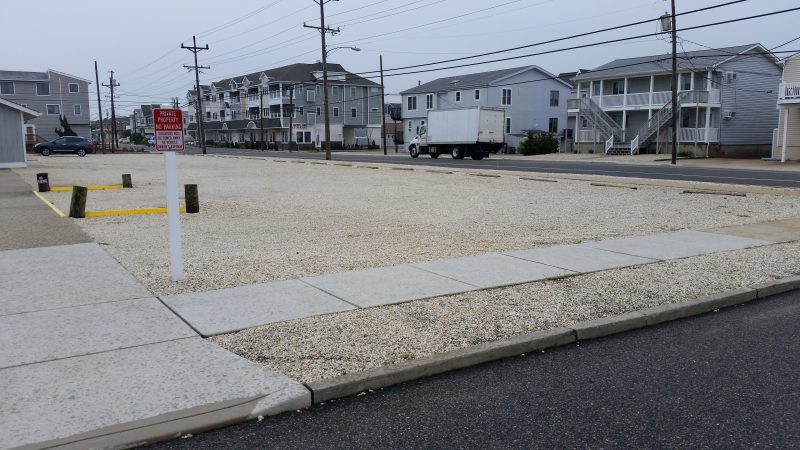
By Donald Wittkowski
With a median home value of $640,700, Sea Isle City wouldn’t normally seem like a place that would have “affordable housing.”
But the upscale beach town is fulfilling its state constitutional obligation to provide its “fair share” of affordable housing under an agreement approved by the city’s Planning Board this week.
Overall, the agreement calls for a total of 366 units of affordable housing to be built through 2025. The units would be scattered throughout the city instead of being concentrated in just a few locations because of the scarcity of developable land on the barrier island.
The plan provides a “realistic opportunity for production of affordable housing with a minimal impact on neighborhood character and community services,” according to the document, dated May 11.
Paul Baldini, Sea Isle’s solicitor, said there is nowhere near the amount of developable land in town needed to build 366 units of affordable housing. Instead, the housing plan designates areas throughout town where affordable units might be built in coming years, he noted.
“It’s going to be a slowly evolving process. It’s not going to happen overnight,” Baldini said.
Adam Gordon, an attorney for the Fair Share Housing Center, acknowledged it would be unrealistic to think that 366 units of affordable housing would ever be developed in Sea Isle, considering the lack of available land.
“We recognize that number of homes will not be built in the foreseeable future in Sea Isle,” said Gordon, whose nonprofit organization negotiates agreements with New Jersey municipalities for their affordable housing obligations.
Gordon wasn’t sure how many affordable units might actually be built in Sea Isle. He estimated that perhaps 50 to 75 units could be built over time if the local churches ever decide to develop their land in partnership with organizations that specialize in affordable housing.
“A lot of it depends on whether church property is used for affordable housing,” he said.
Gordon praised Sea Isle for coming to terms on a framework to fulfill its affordable housing obligations.
“I think it’s a good plan overall. It takes into account what’s good for Sea Isle overall,” he said.
Baldini also called it a “good plan.” He said it complies with the constitutional requirements of New Jersey’s landmark Mount Laurel court doctrine, which stipulates that municipalities must provide their “fair share” of affordable housing for people with low or moderate incomes.

Baldini explained that affordable housing would be incorporated within Sea Isle’s existing zoning laws to blend it into the community.
“We’re not building the housing. We’re creating the opportunity for the housing,” he said.
The affordable housing agreement is the final piece of Sea Isle’s updated master plan, a sweeping document that will guide the city’s planning and zoning over the next 10 years.
Sea Isle’s affordable housing obligations will now be incorporated into the master plan. The Planning Board gave its approval on Monday night. Next, the affordable housing agreement and the master plan will be given to City Council for its consideration, Planning Board secretary Genell Ferrilli said.
Sea Isle last updated its master plan in 2007. Under New Jersey law, municipalities are required to update their master plans every 10 years. Sea Isle had originally hoped to approve its updated master plan in 2016, but it encountered delays caused by the legal battle over its affordable housing obligations.
In 2015, the city sought a court order declaring that it was in compliance with the state’s Fair Housing Act of 1985 and the Mount Laurel doctrine.
Bringing the litigation to a close, Sea Isle and the court-designated Fair Share Housing Center reached agreement last December on the city’s affordable housing needs. A state Superior Court judge approved the settlement.
Under the city’s plan, pockets of affordable housing units would be scattered throughout town in an “inclusionary zone” comprising many blocks and lots.
Builders would be given tax and construction incentives to include affordable housing units in their projects. Development fees will help finance the affordable housing plan, according to the document.

New Jersey also allows municipalities to satisfy 25 percent of their affordable housing obligations by building units for senior citizens.
Baldini said the plan creates new zones for affordable senior-citizen housing on what is currently a parking lot on Landis Avenue between 58th and 59th streets and another area now used for parking on Central Avenue between 44th and 45th streets.
The parking lot on Central Avenue is owned by the St. Joseph Catholic Church, while the one on Landis Avenue is owned by the Sisters of Mercy, another Catholic organization, Baldini said.
Church-owned land was designated as possible sites for affordable housing because of the history of churches in general to partner with charitable organizations and other groups that specialize in affordable housing, Baldini and Gordon said.
Baldini stressed that Sea Isle has no plans to try to seize the church land through eminent domain for affordable housing or to pressure the churches to build affordable housing. He said the city would like to collaborate with the churches if they ever decide to use their property for affordable housing.







